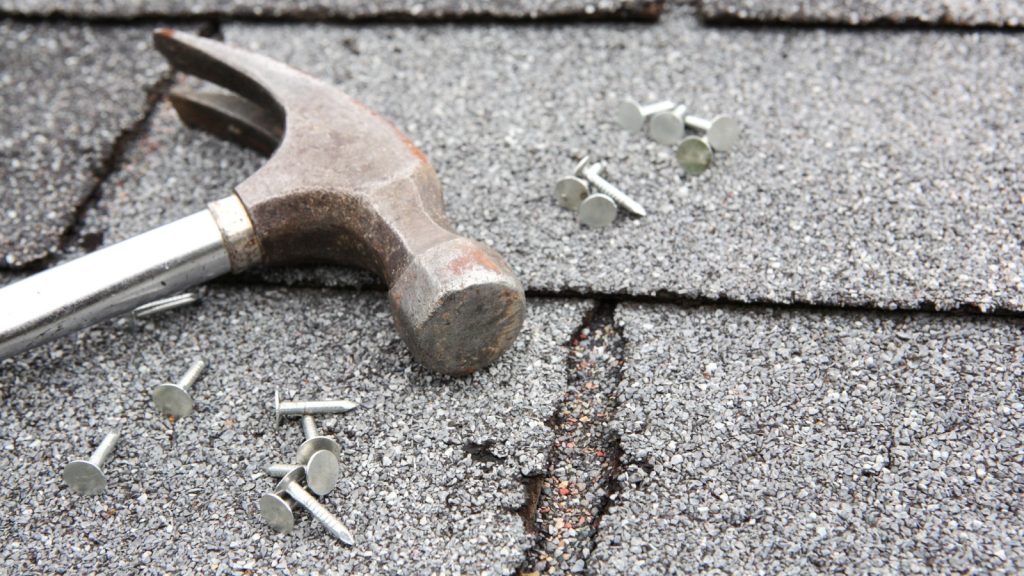Is a Roof Replacement Tax Deductible?

What Homeowners in Lawrenceville Need to Know
Replacing a roof is a significant expense for homeowners, typically costing thousands of dollars. Naturally, you might wonder if you can offset some of this cost through tax deductions. If you’re a Lawrenceville, Georgia, resident considering a roof replacement, it’s essential to understand the IRS rules regarding home improvements, deductions, and potential tax benefits tied to energy efficiency. This article breaks down everything you need to know about whether a roof replacement is tax deductible and how you can maximize your savings.
Understanding IRS Guidelines on Home Improvement Tax Deductions
The IRS generally classifies home improvements and repairs differently for tax purposes. A home improvement adds value to your property, enhances its utility, or extends its longevity. Examples include installing a new roof, upgrading HVAC systems, or building an addition to your home. On the other hand, home repairs, such as fixing a leak or patching up small damages, are considered routine maintenance.
Standard roof replacements fall under home improvements because they add long-term value to your home. However, as a typical rule, home improvement costs are not tax-deductible at the time they are incurred. Instead, these costs may be added to your property’s cost basis, which can help reduce capital gains taxes when you eventually sell your home.
Factors Determining the Deductibility of Roof Replacement Costs
Although not immediately deductible, certain factors can influence whether your roof replacement costs qualify for additional tax considerations:
- Primary Residence vs. Rental Property: If you own a rental property and replace the roof, the expense may qualify as a deduction under rental property operating expenses. For landlords, roof replacement can be claimed as either a repair or a capital improvement, depending on the scope of the project.
- Energy-Efficient Roofing Materials: Replacing your roof with energy-efficient materials (e.g., reflective shingles or metal roofs) often makes you eligible for federal and state tax credits. We’ll explore this in greater detail below.
- Business Use of Home: If part of your home is used exclusively for business purposes (e.g., a home office), you may qualify to deduct a portion of the roof replacement costs under the home office deduction.
Tax Benefits for Energy-Efficient Roof Upgrades in Georgia
If you’re upgrading your roof with energy-efficient materials, you may qualify for the Federal Residential Energy Efficient Property Credit or specific state programs. These are incentives offered to homeowners who invest in sustainable home improvements that reduce energy consumption.
For Residents in Lawrenceville, GA
- The federal tax credit covers up to 30% of the cost for energy-efficient improvements, including reflective and solar roofs. These roofs help regulate temperatures and lower energy bills in hot, humid climates like Georgia.
- Certain local utility providers in Georgia also offer rebates for installing energy-efficient roofing materials, which can further reduce your overall costs.
It’s wise to review the specific eligibility requirements, such as the types of materials or performance standards outlined by the IRS or state programs. Keep all documentation from your roof installation to claim these credits.
How to Document Roof Replacement Expenses for Tax Purposes
Accurate record-keeping is critical in ensuring you receive all eligible tax benefits for your roof replacement. Here are some steps to document your expenses properly:
- Retain Receipts and Contracts: Keep all invoices, contracts, and receipts from your roofing contractor. Include the total cost breakdown for materials and labor.
- Take “Before and After” Photos: Visual records can come in handy to demonstrate the scope of the project, especially if you’re claiming energy-efficient improvements.
- File Certification Documentation: If you installed energy-efficient roofing, ensure you have the manufacturer’s certification indicating the product meets performance standards for tax credits.
- Track Related Costs: If additional costs, such as repairs to the underlying structure, were incurred during the roof replacement, keep detailed records of these expenses as well.
Common Misconceptions About Roof Replacement Tax Deductions
It’s easy to get confused about what qualifies as a tax deduction. Here are some common misconceptions that homeowners should clear up:
- ”All roof replacement costs are deductible.” Not true. Only specific circumstances, such as energy-efficient materials or rental properties, typically allow for deductions or credits.
- ”Home repair deductions apply to roof replacements.” Repairs are not improvements. Fixing minor roof issues won’t qualify as a deductible expense if it doesn’t add value or extend longevity.
- ”Tax deductions apply in the year of the roof replacement.” For most homeowners, the tax benefits of roof replacement come only when selling the property, as roof costs contribute to the adjusted cost basis.
Professional Help on Maximizing Tax Benefits and Savings
Navigating tax rules alone can be tricky, which is why seeking a professional is always a good idea. Here are a few ways a tax advisor can help:
- Ensure you’re compliant with IRS rules on deductions and credits.
- Maximize long-term tax benefits by advising on cost-basis adjustments.
- Encourage strategic upgrades, such as energy-efficient roof installations, to take advantage of all available credits.
- Assist in documenting expenses accurately to protect you during an audit.
If you’re about to undertake a roof replacement project, consult an accountant or financial planner with expertise in property-related tax rules. They can clarify your eligibility for deductions and credits tailored to your unique circumstances.
Make an Informed Decision About Your Roof Replacement Tax Deductions
Replacing your roof is a big investment. With smart tax planning and the right guidance, you might qualify for deductions, credits, or other savings to offset costs. Plus, navigating insurance claims can be tricky—but that’s where Bumble Roofing of Forsyth and Gwinnett steps in to help.
At Bumble Roofing, we don’t just handle roof replacements and repairs—we guide you through the entire process, including working with your insurance provider. Our team has the expertise to ensure your claim is handled smoothly and that you understand all your options. With a focus on quality craftsmanship, durable materials, and customer satisfaction, we’ll make sure your home is protected for years to come.
From planning your Lawrenceville, GA, roofing project to securing financial savings, Bumble Roofing of Forsyth and Gwinnett is here every step of the way. Let us take the stress out of your roofing journey!
Roofing, the Easy Way
Get Estimate





